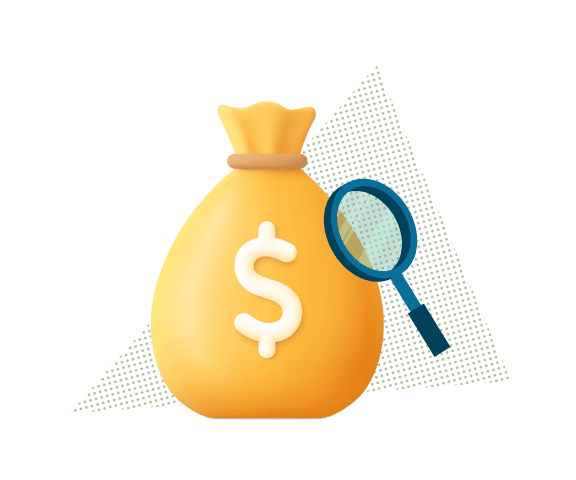Understanding Budgets: A Simple Guide
Updated: 22 May 2025
A budget serves as a financial roadmap, outlining your income, monitoring your spending, and allocating funds for your financial aspirations.
Written bySingSaver Team
Team
The information on this page is for educational and informational purposes only and should not be considered financial or investment advice. While we review and compare financial products to help you find the best options, we do not provide personalised recommendations or investment advisory services. Always do your own research or consult a licensed financial professional before making any financial decisions.
The definition of a budget
A budget is a structured financial plan designed to help individuals manage their income and control their spending. It serves as a guide to allocate resources efficiently while keeping track of financial priorities.
To create a well-rounded budget, it’s essential to differentiate between fixed expenses and variable expenses.
-
Fixed Expenses: These are recurring costs that remain consistent each month. Examples include Central Provident Fund (CPF) contributions, Housing and Development Board (HDB) loan repayments, Service and Conservancy Charges (S&CC), and insurance premiums.
-
Variable Expenses: These fluctuate depending on lifestyle choices and daily spending, such as groceries, dining at hawker centres, public transport costs, and entertainment.
By understanding these categories, Singaporeans can better manage their finances and plan for long-term goals.
What is considered a good budget?
A good budget is practical, adaptable, and personalised to suit your income, lifestyle, and financial goals. It ensures you have a clear overview of your financial health while leaving room for flexibility.
One popular budgeting framework in Singapore is the 50/30/20 rule, which allocates:
-
50% of income to necessities
-
30% to discretionary spending
-
20% to savings and investments
In addition to this, a good budget should account for the following:
-
CPF Top-Ups: Voluntary contributions to bolster retirement savings.
-
Insurance Premiums: Paying for essential coverage like MediShield Life and private riders for added healthcare protection.
-
Investments: Allocating funds to instruments such as the Supplementary Retirement Scheme (SRS) or Real Estate Investment Trusts (REITs) to grow wealth over time.
By tailoring your budget to include these critical elements, you can build a solid foundation for financial security and adaptability in Singapore’s unique economic landscape.
Master your money: Strategic income allocation
Take control of your finances by learning how to allocate your income effectively. This involves a balanced approach, carefully distributing your earnings across essential expenses, discretionary spending, savings goals, and debt repayment. By prioritising these categories, you can create a budget that supports both your daily needs and long-term financial well-being.
The key purpose of budgeting
Creating a budget is more than just tracking your expenses—it's about taking control of your finances to achieve life’s big milestones. Whether you’re saving for a wedding, planning for children, or dreaming of that perfect holiday, a budget helps you manage your income responsibly while preparing for the future.
Budgeting offers clarity on your cash flow, helping you see exactly where your money is going. It ensures you can allocate funds wisely, avoid unnecessary debt, and plan effectively for retirement goals like CPF LIFE.
Example: A couple earning S$7,000 monthly decides to budget S$1,000 a month towards their HDB downpayment. In two years, they’ll have S$24,000 saved, putting them in a strong financial position to secure their first home.
By prioritising goals and maintaining financial discipline, budgeting helps you turn aspirations into reality while ensuring financial stability.
The importance of budgeting
Budgeting isn’t just for those facing financial challenges—it’s a tool everyone can use to take control of their money and work towards their goals. By managing your money intentionally, a budget supports your journey toward financial freedom.
Budgeting can help you:
-
Monitor where your money is spent: Budgeting highlights your spending habits, making it easier to cut unnecessary expenses. Tools like Seedly or DBS NAV Planner can help you track subscriptions or impulse purchases.
-
Plan your expenses ahead: Use your budget to prepare for predictable costs like insurance renewals, tax payments (IRAS), or school fees. This avoids last-minute financial stress.
-
Future savings: Setting aside money each month builds your emergency funds and allows for CPF or SRS top-ups, creating a safety net for unexpected events.
-
Avoid getting trapped in debt: Budgeting frees up cash to focus on repaying debts like credit card balances or education loans, reducing interest burdens over time.
-
Reduce financial stress: Knowing where your money is going can bring peace of mind, boost confidence, and reduce anxiety about finances.
Getting started with budgeting
Getting started with budgeting is simple if you break it into clear steps:
-
Calculate your income: Calculate your monthly take-home pay after CPF contributions. This gives you a clear picture of your usable income.
-
Monitor your expenses: Keep tabs on your spending in categories like groceries, transport, dining, and subscriptions. Use tools like bank apps or budgeting apps to monitor these expenses.
-
Review your current financial situation: Note your current bank savings, CPF balances, and any outstanding debts, such as personal loans, education loans, or credit card balances.
And as mentioned, one of the simple and effective budgeting frameworks is the 50/30/20 rule. This rule allocates 50% of your income for needs, 30% for discretionary spending, and 20% for savings. This method provides a balanced approach to managing your finances, but feel free to adjust the percentages based on your personal needs and financial goals.
However, consistency is key! Make sure to check your budget every month to ensure you’re on track and adjust it as necessary.
Relevant articles
About the author
SingSaver Team
At SingSaver, we make personal finance accessible with easy to understand personal finance reads, tools and money hacks that simplify all of life’s financial decisions for you.
